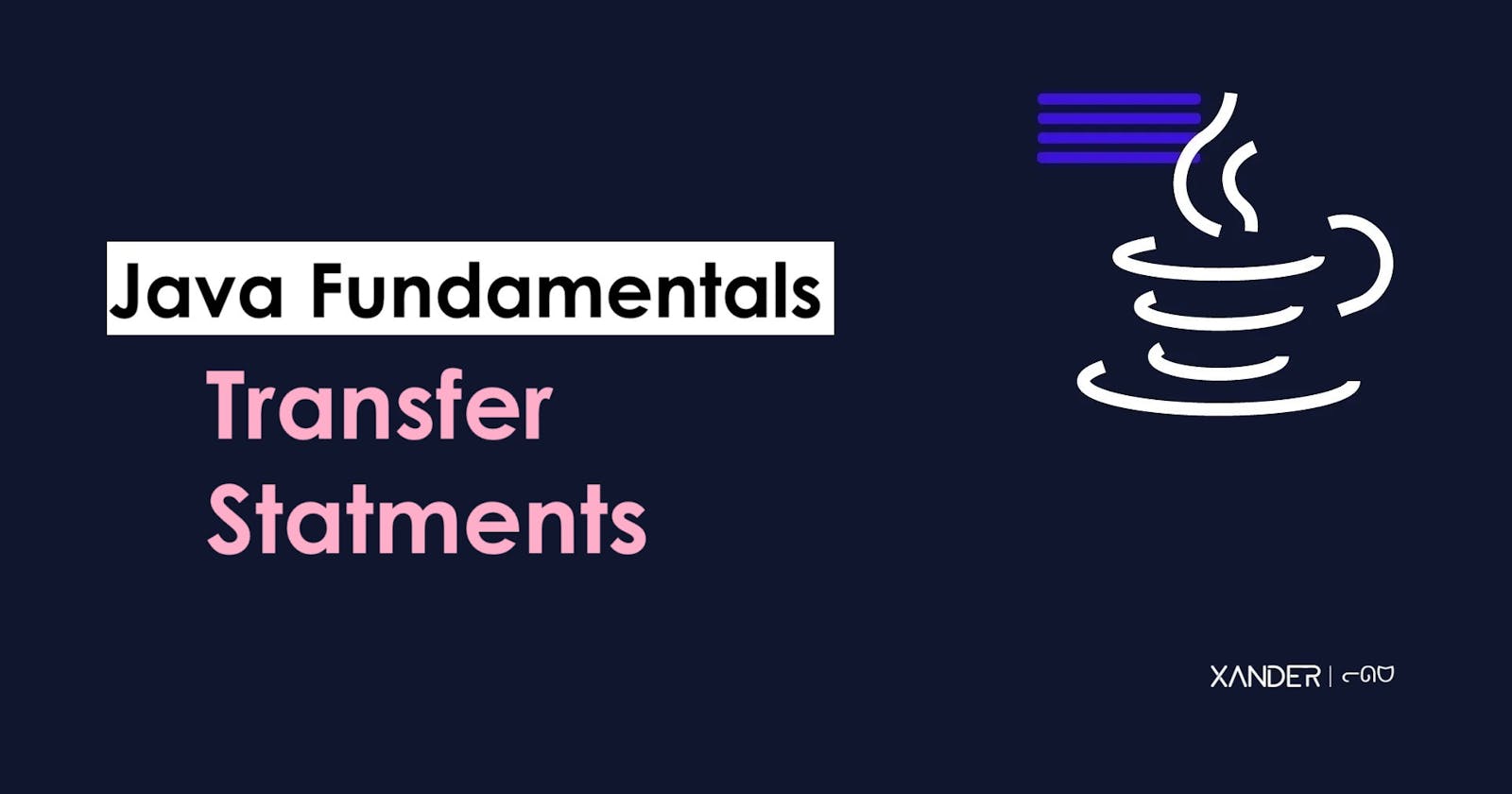Mastering Java Transfer Statements: Streamlining Control Flow in Your Code
Flow control • Java Fundamentals
In Java programming, transfer statements play a crucial role in managing control flow within your code. These statements allow you to alter the normal flow of execution, providing flexibility and efficiency in handling various scenarios. In this blog post, we will delve into the key transfer statements in Java and explore how they can be effectively used to streamline your code.
The statement which is used to transfer the control of sport from one place to another are called transfer statements
The break Statement:
The
breakstatement is commonly used to terminate the execution of a loop or switch statement prematurely.It allows you to exit the loop or switch block based on a specified condition, providing a way to break out of repetitive tasks when certain criteria are met.
for (int i = 0; i < 10; i++) {
if (i == 5) {
break; // Exit the loop when i reaches 5
}
System.out.println("Iteration: " + i);
}
We can use break in following blocks -
for loop
switch case
inside label block
The continue Statement:
The continue statement is used to skip the rest of the code inside a loop for the current iteration and proceed to the next iteration. This can be valuable when you want to bypass certain conditions within the loop without terminating the entire loop.
for (int i = 0; i < 10; i++) {
if (i % 2 == 0) {
continue; // Skip even numbers
}
System.out.println("Odd Number: " + i);
}
The return Statement:
While not exclusive to loops, the return statement is a powerful transfer statement that immediately exits a method and can also return a value. In the context of loops, using return allows you to exit a method prematurely based on a specific condition.
public int findValue(int[] array, int target) {
for (int i : array) {
if (i == target) {
return i; // Exit the method and return the matching value
}
}
return -1; // Return -1 if the target value is not found
}
The label and break Statements:
Java also supports labeled break statements, which allow you to break out of nested loops based on a specified label. This can be particularly useful when dealing with nested structures.
outerLoop: for (int i = 0; i < 5; i++) {
for (int j = 0; j < 5; j++) {
if (i * j > 6) {
break outerLoop; // Break out of both loops when condition is met
}
System.out.println("i * j: " + (i * j));
}
}
do while and continue :
If we are using continue in do while then if continue executed the transfer will go to do while conditional check.
int x = 0;
do{
x++;
System.out.print(x + " ");
if(++x < 5)
continue;
x++;
System.out.print(x + " ");
}while(++x < 10); //Output - 1 4 6 8 10
Initialize
xto 0.Enter the do-while loop.
Increment
xby 1 (x++) and print its value (1). Output:1Check the condition
if (++x < 5). Sincexis now 2 (++x), and 2 is less than 5, thecontinuestatement is executed, skipping the rest of the loop body and jumping to the next iteration.Increment
xby 1 (x++). Now,xis 3.Increment
xby 1 (++x) and print its value (4). Output:1 4Check the condition of the do-while loop
while (++x < 10). Sincexis now 5 (++x), the condition is false, and the loop exits.
So, the final output is 1 4 6 8 10 based on the values of x during each iteration of the loop.
Conclusion:
Mastering transfer statements in Java provides you with powerful tools to control the flow of your code. Whether you need to break out of a loop prematurely, skip specific iterations, or exit a method with a value, these statements enhance the flexibility and efficiency of your programming. By understanding when and how to use break, continue, and return statements, you can write more concise and effective Java code.
Happy coding!

